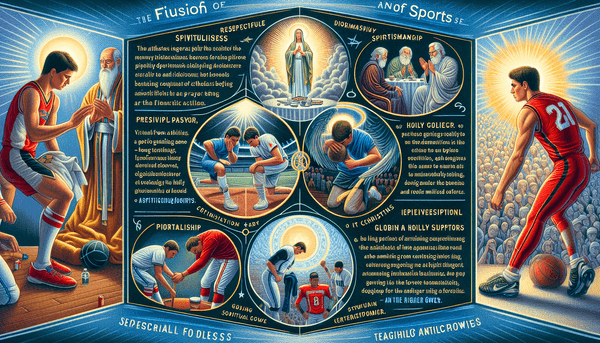The Pursuit of Righteousness
Righteousness, a state of moral purity and adherence to God’s will, stands as a beacon for those who seek to live virtuously. The Bible tells us in Matthew 5:6 that those who hunger and thirst for righteousness will be filled, highlighting the spiritual nourishment that comes from this pursuit. It is a calling to align our actions and lives with the principles found in Scripture, seeking to embody the justice and virtue that God desires. This journey is not only about personal sanctification but also about impacting the world around us. As we strive for honesty, integrity, and fairness, as encouraged in Proverbs 21:3, we become advocates for justice and vessels of God's love, cultivating a heart that reflects the compassion and service Jesus exemplified. Righteousness thus transforms our character, shapes our relationships, and stands as a testament to our faith in action.
The Significance of Communion
Communion, a sacred ritual within Christian worship, serves as a profound act of remembrance of Jesus Christ's ultimate sacrifice. As believers partake in the bread and wine, they proclaim the Lord's death until He comes again, as mentioned in 1 Corinthians 11:26. This sacred act is not bound by a specific time or day, but rather it is a personal and spiritual decision to draw near to Christ and reflect on His resurrection, which is particularly poignant during Easter. Before approaching the table of communion, one should examine themselves, confess sins, and seek forgiveness to partake in a manner worthy of the Lord, as advised in 1 Corinthians 11:27-28. This introspection and repentance are essential to receiving communion with a heart of humility and respect, ensuring that the act remains a sincere expression of faith and devotion to the one who gave His life for us. In the journey from estrangement to reconciliation, the biblical teachings provide a blueprint for personal growth and faithful living, as is the nature of communion itself.
The Value of Wisdom and Understanding
In a world that often equates success with power and wealth, the Bible presents a contrasting view, elevating wisdom above earthly pursuits. Ecclesiastes 4:13-16 tells of a poor but wise youth who rises to power only to be eventually forgotten, illustrating the transitory nature of authority and success. This passage urges us to seek a deeper understanding and wisdom, which offers lasting fulfillment and guidance for life's decisions. Wisdom, as the heart of the wise continually seeks it (Proverbs 4:7), provides a stable foundation for ethical behavior and moral living. It is a treasure that offers peace and stability, shaping not only our own lives but also impacting those around us through our decisions and relationships. As we embark on this quest for divine wisdom, we are promised that those who seek it earnestly will find it, and with it, a life enriched by God's enduring truth and love (James 1:5).
Conclusion
As we conclude this journey through the teachings of Christ, it becomes clear that embracing Jesus' yoke, pursuing righteousness, partaking in communion, and seeking divine wisdom are not just individual acts of faith but interconnected experiences that shape a believer's life. Each element offers a unique avenue for personal growth and a deeper understanding of God's will. The transformative power of these teachings is profound, providing guidance, comfort, and strength as we navigate the complexities of life. By integrating these principles into our daily walk with Christ, we can forge a path that honors God and reflects His love to the world. Let us therefore continue to explore our faith with intention and dedication, drawing ever closer to the heart of God.
FAQ
Q: What does it mean to take Jesus' yoke upon us?
A: Taking Jesus' yoke upon us means submitting ourselves to His teachings, guidance, and way of life. It involves choosing to walk alongside Him, allowing Him to lead and direct our paths, and entering into a partnership with Him to share in His work and find rest for our souls.
Q: What does Matthew 11:29-30 mean?
A: Matthew 11:29-30 is an invitation from Jesus for us to take His yoke upon us and learn from Him. He offers a way of living that is not burdened by the heavy demands of the world. By taking on His yoke, we learn from His example and find peace, comfort, and a lighter burden for our lives.
Q: What does Ecclesiastes 4:13-16 mean?
A: Ecclesiastes 4:13-16 reflects on the value of wisdom and the limitations of power and authority. It tells of a poor and wise youth who rises to power and replaces a king, but is eventually forgotten, reminding us that worldly success and power are temporary and ultimately meaningless without wisdom.
Q: Do you have to take communion on Easter?
A: There is no biblical requirement to take communion on Easter or any specific day. Communion is a sacred act of remembrance of Jesus Christ's sacrifice and can be partaken in regularly as a way to commemorate the Last Supper and proclaim the Lord's death until He returns.






